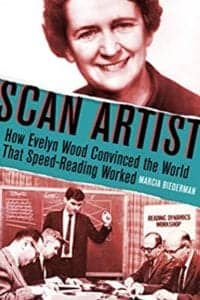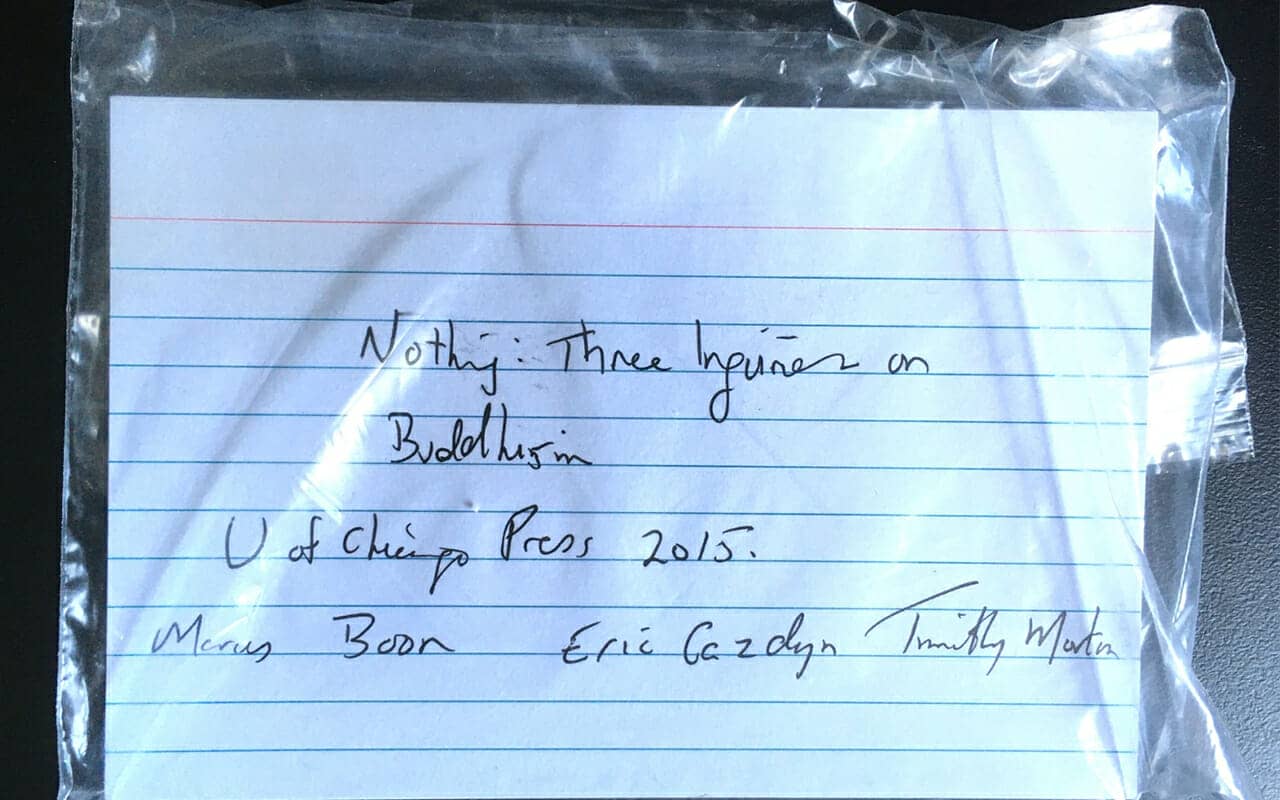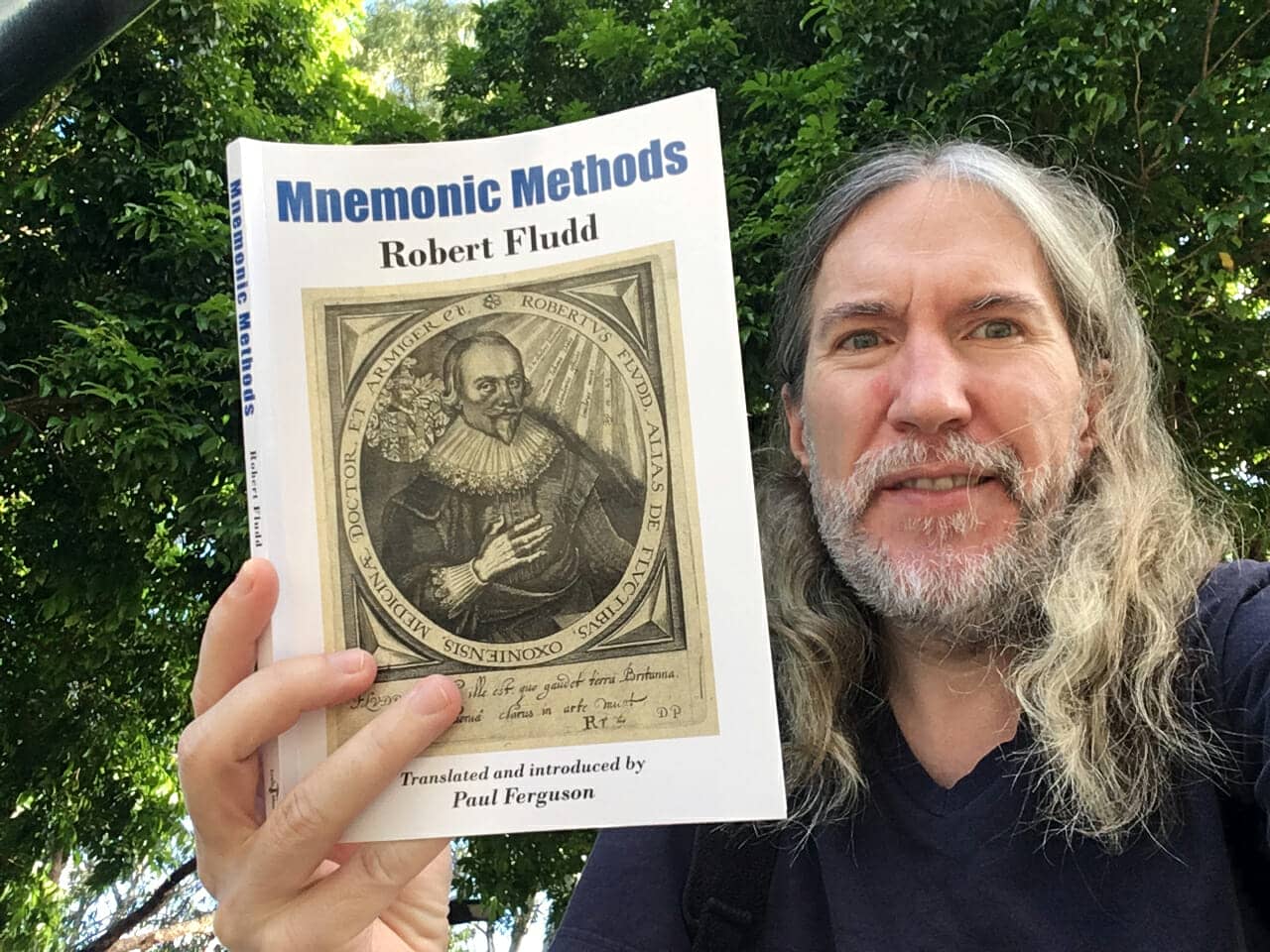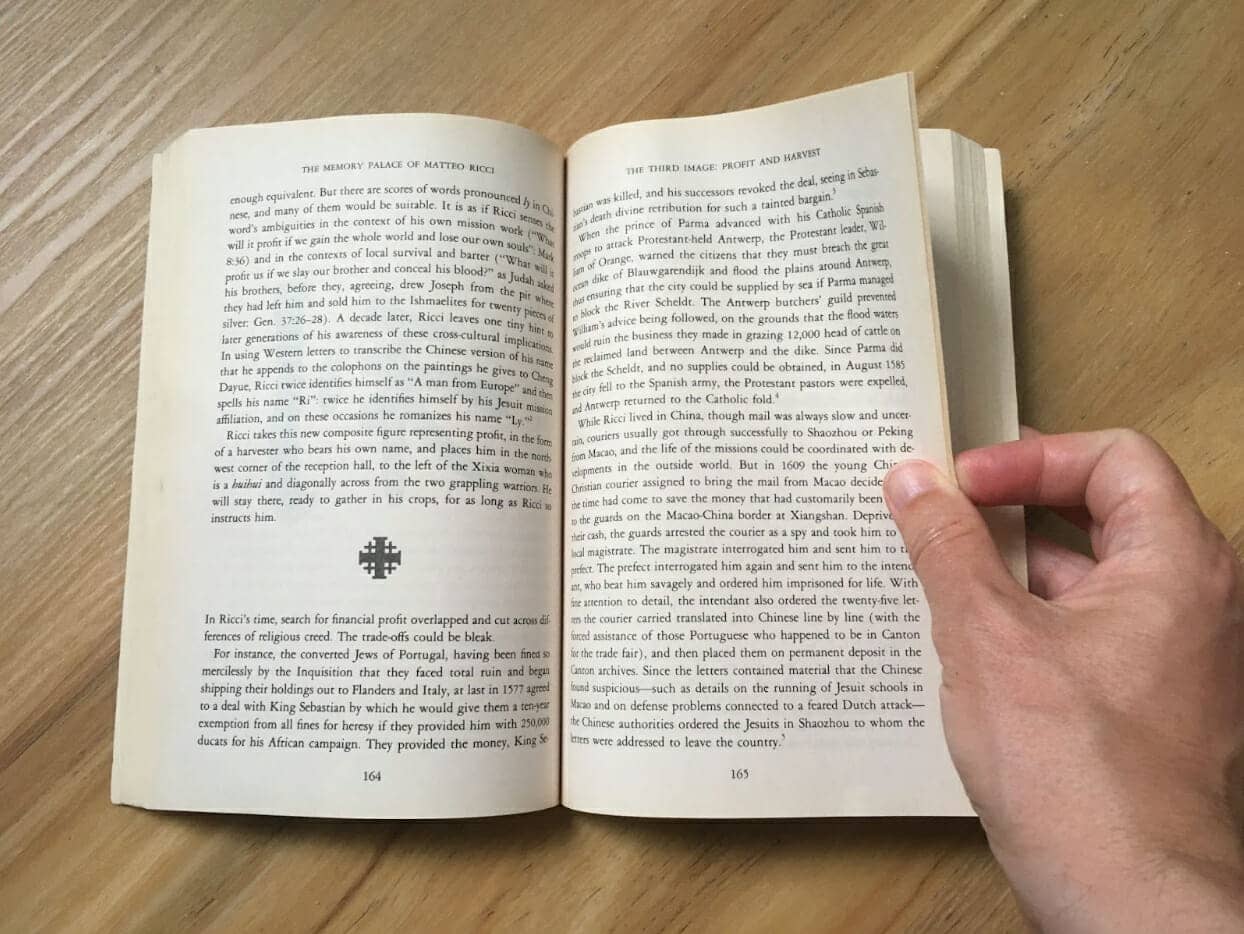 If you really want to improve your average reading speed, this page has the information you need.
If you really want to improve your average reading speed, this page has the information you need.
See, a lot of people are happy to tell you strange and fantastic things about “speed reading.”
But so much of it is false.
And it actually leads to reduced comprehension.
What’s the point of reading at all if you can’t understand the materials?
Instead, we’re going to look right now at what actually works to boost your average reading speed.
You’ll improve your memory too by using an unconventional critical thinking technique probably no one else will teach you.
Ready?
Let’s dive in!
How Fast Does the Average Person Read (WPM)?
The typical answer is between 250-350 words per minute.
But here’s the thing:
I don’t believe in “average,” certainly not when it comes to human beings.
As discussed in my post on signs of intelligence, each and every person needs to evaluate themselves on their own merits.
And because high IQ is such a controversial concept, it’s important to stop playing games of comparison.
So instead of asking, “How fast does the average person read?” let’s start by asking a much more empowering question:
Why do you want to read faster?
What about your current reading speed bothers you right now?
Please. Get out a journal and write out your answers to those questions. Reflect deeply on them and try to produce at least 250 words in a solid paragraph answer.
This is an important step because when memory champions journal, it’s proven to be the best way to increase speed.
The Sordid History Of Having A “Good Reading Speed”
Have you ever wondered why people want to improve their reading speed in the first place?
According to my research, the desire arises from Alfred Volkmann and the invention of the tachistoscope. Originally designed to help with speed of recognition in military settings (such as spotting enemy planes), James Brown has shown how it came to be used in various scientific attempts to enable more efficient reading.
Later, charlatans like Evelyn Wood turned measuring reading speed into an industry of books and courses. Marcia Biederman has exposed this fraud in-depth in her excellent book, Scan Artist.
The good news is that you can get a baseline by measuring your reading speed, and I’ll show you how.
But the idea that having such a number and working to increase it is going to improve your reading skills is quite unlikely. In fact, I’ll show you how you can spend your time on much more empowering activities.
Average Reading Speeds by Age
Even if the idea of measuring your reading speed for improvement purposes is suspect, scientists certainly have legitimately studied reading speeds by age.
In fact, some of these studies help scientists debunk claims about speed reading.
That said, let’s have a basic look at how different age groups have been measured in various studies.
Children
Pretty obviously, children start at 0 words per minute.
Once literacy training begins, the goal is to reach an average reading speed of 100 words per minute for basic success in elementary school.
Teenagers
By the end of high school, the average reading speed according to many studies is 200-250 words per minute.
Adults
Often, adults read very poorly. Due to a variety of factors, some adults start undergoing linguistic deskilling, for example. Early signs of Alzheimer’s or issues arising from brain trauma, PTSD or a stroke might be in play as well.
Many adults often use ineffective skimming and scanning as well. Often, this habit places them below the 200 word per minute range.
And that’s just one of several factors that cause people to read more slowly than the might otherwise.
Let’s look at a few more.
7 Factors That Can Affect Your Reading Speed
As we’ve seen, skimming through books might create the illusion that you’re reading faster. But because of how human memory uses a chunking strategy to take in new information, skimming and scanning only really works when you use such tactics based on a previously developed fundamental knowledge in a topic.
And even then, you’re risking missing out on main points that could make the difference in your understanding, if not your career.
What else helps and hinders your reading speed?
1. Memory Biases
Have you ever read one book smoothly, only to find the next one impossible to get through?
“But I’m a good reader,” you think. In reality, you’re experiencing a memory bias called recency effect.
There are many such biases, but often we are either playing a game of comparison with others, or ourselves. Your past reading performance is not a great indicator of your future reading experiences. This is why having a variety of reading comprehension strategies is so important.
2. Lack Of Multisensory Visualization
Many people see images while reading or otherwise use visualization reading strategies.
That’s great, but mental imagery is about so much more than seeing pictures in your mind.
But when you get into memory techniques, you’ll learn how to use mnemonic images that tap into multiple sensory dimensions.
True, there’s a bit of learning curve that can slow you down in the beginning. But once you’re up and running, you’ll wind up reading faster, remembering more and improving your ability to reflect on your reading. Reflective thinking is a huge part of what makes time spent reading truly valuable.
3. Stress & Anxiety
Reading quickly requires a clear mind. But stress and anxiety have been shown to cause all kinds of memory issues.
So even if you can read while you’re strung out, chances are you won’t remember much of the material, even if your nerves drive you to go faster.
Foods that harm memory are one of the major sources of anxiety. You can use your journal to take a hard look at your diet and work on adding memory friendly foods, teas and herbs instead.
Yoga can also help improve your memory while reducing stress and anxiety that slow down your reading speed. I’ve also personally benefitted from guided visualizations specifically designed for tackling anxiety. For best results, I combine all of these activities with breathwork.
4. Your Reading Environment
My concentration is generally quite sharp. But even the highest level of mental acuity is not a defence against reading in the midst of chaos.
Reading in bed is actually not a bad thing, by the way. You can easily read while laying down without putting yourself to sleep. But if you’re concerned about drifting off, check out my list of favorite reading spots for some ideas.
5. Reading On Devices Vs. Physical Books
Make no mistake. Reading on a device feels faster.
But does it really lead to consuming information at a faster pace? Probably not.
I prefer reading from print for a variety of reasons, one of which is how it helps enable the PAO System I love using as one of my favorite reading strategies.
Reading in print also helps me avoid digital amnesia.
6. Vocabulary Level
Although I haven’t read every literacy study under the sun, those that I have studied conclude on one key point:
The path to reading faster and increasing the value of your time when studying boils down to reducing speed bumps.
And the biggest speed bump of all for most people is lacking key vocabulary.
That’s why I spend time every day memorizing new vocabulary in a few different languages. It’s the most impactful technique for improving reading speed I know, and a major alternative to any of the suggestions I’ve seen in the heavily marketed speed reading courses of our time.
7. The Reading Material Itself
Let’s face it. Sometimes the problem isn’t with you.
It’s with the book.
Not every author is given a great editor, after all. And in our online world, more and more people release books that haven’t been edited at all.
Generally, it’s a good thing that technologically has enabled many more people to get their ideas out there than ever before. But it can create challenges for readers when books haven’t been edited for clarity.
Another issue stems from reading in a completely specialized field. It’s not that you shouldn’t read a variety of material. But when I find myself out of my league, I look for an introductory text that will give me the foundations needed to deal with the complexities I’m not yet ready for.
This strategy of simplifying is perfectly valid. We know from studies in neuroplasticity that you can rewire your brain. In this case, it just takes a bit of humility, research and willingness to start at a simpler level before returning to the more complex material.
5 Practices to Reach a “Good” Average Reading Speed
There are more issues that might cause your reading speed to dip. The health and coordination of your eyes, neurological factors and even psychological issues can present issues.
But let’s turn now to focus on tactics that will improve your memory speed once the various barriers have been considered.
One: Establish A Baseline
For those who want to see an actual increase despite all of the caveats I’ve already given, here’s how to get a number that you can work on increasing.
First, grab a book, open to any page and count the words.
Next, get a timer and start reading.
Once done, divide the number of words by the minutes it took you to read the page. This will give you the Words Per Minute (WPM).
Two: Measure Your Comprehension
This is where things get tricky.
How do you know how well you’ve understood something?
One way is to check for study questions, either in the book or somewhere online.
For example, if you answered correctly 7 out of 12 questions, then you can give yourself a Comprehension Score (CS). So in the example of 7/12, your CS is:
CS = 7 * 100 / 12 = 58 %
From there, you would take your WPM. For example, if you have the highly unlikely speed of 600 WPM and your CS is 75%, then your Comprehension Score works out to 450 WPM.
Three: Drop Step One & Two
Sorry.
I included those formulas to make a point.
Counting words on the page and spending time on number crunching using formulas is a complete waste of time. Even some otherwise good speed reading books are wrong when they chew up your time with such strange math exercises.
Try the following steps instead.
Four: Read More
In addition to improving your vocabulary, one of the best things you can do is increase the amount of material you read each day.
Some people will find this suggestion disappointing, but it’s what the science tells us.
As literacy expert Hollis Scarborough‘s, research strongly suggests, anything in reading that becomes increasingly strategic will become increasingly automatic.
And that’s what we want: The ability to read effectively and efficiently without having to think about the act itself too much. That’s when the many benefits of reading will really start to switch on. Including the focus needed to read well.
Even better, it’s when reading can really start to help make your smarter.
Speaking of becoming smarter, let’s talk about some powerful strategies for extracting information next, especially when you want to maximize the time spent on learning from textbooks.

Five: Explore Note Taking & Other Comprehension Boosting Strategies
There are many ways to make reading more engaging and faster without sacrificing comprehension.
My favorite include:
- The Zettelkasten Method
- Mind mapping
- Enhanced flashcards and Anki
- Using Memory Palaces
What Is A Good Reading Speed?
At the end of the day, the best possible reading speed is the one that makes you feel great and helps you complete goals.
It’s next to impossible to feel amazing while reading if you’re worried that everything is slipping through the cracks.
And even though it’s good to go in caution of “grinding” as you make your way through life, it’s psychologically healthy to complete goals.
That’s why I suggest you treat writing as a deliberate practice without too much attention paid to the exact speed in such a granular manner.
I’m all for the free market and am in no way anti-capitalist. But it’s pretty obvious that speed reading only becomes a major concern after the Industrial Revolution and the explosion of mass media in the 50s.
Speed reading follows the logic of the same “numbers go up” policy that drives capitalism. That’s neither good nor bad until itself, but it creates an “all or nothing” attitude in so many people that simply isn’t helpful.
But if you want to enjoy memory skills that use numbers realistically with a focus on goals you can actually complete, please sign up for my free memory improvement course here:
It will help you memorize as you read, literally making sure you can remember anything quickly.
Perhaps not overnight.
But soon.
In fact, just as your reading skills will improve automatically the more you focus on strategy, the more too your memory will improve.
Certainly, we all experience learning plateaus, but here’s the very good news:
When your average reading speed is properly contextualized in the overall game of learning, here’s the metric that matters most:
The more you learn, the more you can learn.
Now that’s thinking beyond numbers, so what do you say?
Are you ready to put questions about how long it takes to read 100 pages aside and start focusing on reading with true momentum?
Related Posts
- Why Speed Reading Is The Ultimate Enemy Of A Well-Read Mind
Is "speed-reading" really such an attractive idea? The short answer is ...
- How to Improve Reading Skills: 3 Strategies to Learn More Faster
Improving your reading skills is actually pretty easy. Discover the best way to improve reading…
- The 3 Best Speed Reading Books That Actually Work
If you're looking for the best speed reading books, these 3 gems should not be…













